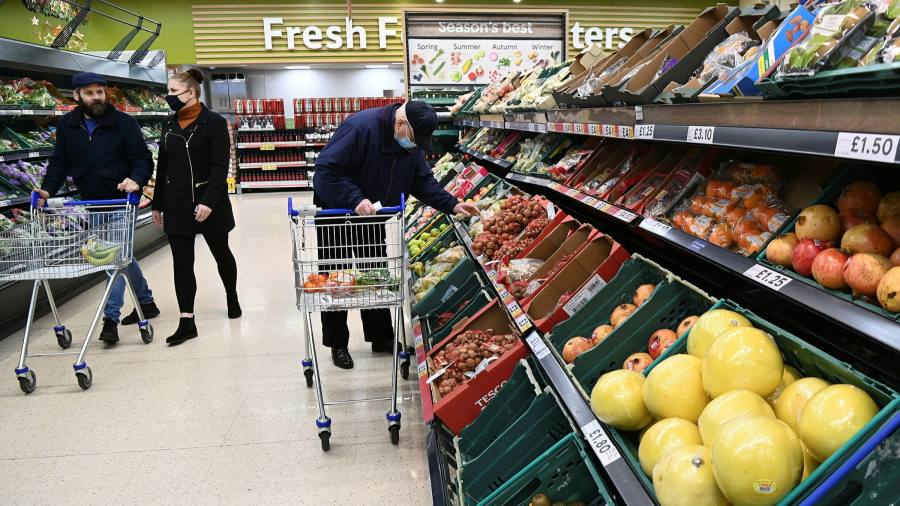Receive free updates from Tesco PLC
We will send you a MyFT Daily Summary e-mail gathering the latest news from Tesco PLC every morning.
Tesco is expected to announce its intention to return capital to shareholders when it releases its half-year results on Wednesday, as the UK’s largest food retailer seeks to ignite a share price that has lagged behind its rivals.
The group’s shares have been the worst performing among the three UK-listed food retailers so far this year, rising only 10% despite its growing operational momentum.
In contrast, shares of J Sainsbury’s gained nearly 30 percent. Those of Wm Morrison, who was the subject of a takeover battle won on Saturday by US private equity group Clayton, Dubilier and Rice, are up more than 60%.
Yields also remained below those of continental peers such as Ahold Delhaize and Carrefour. Yet analysts say Tesco, which flourished during the pandemic as pubs and restaurants have been forced to shut down for long periods of time, is once again increasingly dominating its domestic market.
“For the first time in over a decade, we believe Tesco is in great shape,” noted Andrew Porteous, analyst at HSBC. “The previous team laid the groundwork by restructuring the operating model and starting to refine the business offering, but the new leadership has. . . really tightened the business and boosted sales â€.
According to the Kantar research group, it is the only one of the big four grocers to retain its market share since early 2020; rivals Asda, Morrisons and Sainsbury’s all ceded it, mainly to discounters Aldi and Lidl.
Since the sale of its Asian operations in March – and the return of £ 5 billion to shareholders via a special dividend – Tesco has reduced its debt and strengthened its defined benefit pension plan. Both measures will increase its future profitability and cash flow.
William Woods, an analyst at Bernstein, said Tesco was winning on several fronts – gaining shares in almost every part of the UK and among all age cohorts and social classes.
Its relaunched Clubcard, which now offers holders big discounts on popular lines rather than the possibility of accumulating points, has made it possible to retain and recruit new customers.
“It is very difficult to find a problem with execution, supply or customer appetite,†Woods concluded.
One of the reasons this momentum hasn’t boosted stocks is that Tesco, with a higher market value than Morrisons and Sainsbury’s combined, is considered by many to be too big for a capital takeover. private.
“It would be a big deal, even if the liquidity is such it is possible,†said Clive Black, research director at Shore Capital. “But the market puts a fairly low probability there.”
Black believes the company will use the half-year results to ‘lay a trail’ that will draw investors’ attention to the £ 1.5bn of free cash flow it could generate each year.
“I don’t think they’ll start a buyout right after the results, it’s more likely to come in the spring,” he predicted, noting that CFO Imran Nawaz was relatively new to the job and that concern over food price inflation may also prompt caution.
Food retailers face significant cost pressures from rising commodity prices, Brexit bureaucracy and rising labor costs, especially for truck drivers.
In the late 1990s and early 2000s, Tesco dominated the UK food retail business with £ 1 in £ 8 spent in UK stores going through its checkouts at its peak. His influence was so great that his detractors dubbed him “Tescopoly”.
But Tesco suffered a dramatic fall from grace from 2011, losing customers, getting embroiled in an accounting scandal and finally heralding one of the biggest business losses in the UK in 2015.
Black thinks he’s unlikely to regain the dominance he enjoyed in its pomp, given how far German discounters have taken hold in the UK. “They are going to keep UK supermarkets honest,” he said.
Tesco declined to comment.

